![]()
MEANING: back to the beginning; to start again after the failure of an earlier attempt
IN CONTEXT: Billy assembled the toy car but its wheels wouldn’t turn, so it was back to the drawing board.
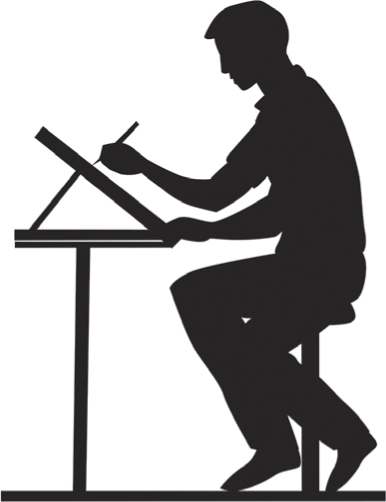
Back to the drawing board began with a cartoon in the March 1, 1941 issue of the New Yorker magazine. A drawing board is an architect or drafter’s table and is used to prepare designs. The cartoon, by the American artist Peter Arno, depicts a number of World War II military personnel running toward a plane that has just crashed. There is a man in a suit holding a set of plans under his arm, walking away from the crash, and the caption reads, “Well, back to the old drawing board.” By the late 1940s, the expression had become widespread and referred to any failed design.
![]()
MEANING: eager and zealous
IN CONTEXT: Carl was excited and gung ho about his new role in the company.
Gung ho originated during World War II. It is an adaptation of the Chinese words kung, meaning “work,” and ho, meaning “together.” The term was anglicized by General Evans Carlson, who had spent time in China before the war. He adopted gung ho as a slogan for his US Marines unit known as the “Carlson’s Raiders,” who served in the Pacific region. The 1943 war film Gung Ho! told the story of the Carlson’s Raiders and brought the expression into the mainstream. The film depicted the unit’s sometimes reckless and irresponsible methods, which altered the meaning of the saying to what it is today.
![]()
MEANING: to cause major destruction, disorder, or confusion
IN CONTEXT: The violent storms wreaked havoc up and down the coast.
To wreak havoc originated in 13th-century France. “Crier havot” was a military call that battlefield generals would make. Havot was the Old French word for “plunder.” To crier havot meant the battle was won and the soldiers could begin the looting. The phrase reached England by the 14th century, where it had evolved to cry havoc. It was widely used, but in 1386, King Richard II banned the phrase on pain of death. The expression was later used by Shakespeare in a number of his plays, which propelled it into the mainstream before it was adapted to wreak havoc.
![]()
MEANING: to accept unpleasant consequences
IN CONTEXT: He had been on the run from the police for a month, but he decided to face the music and turn himself in.
Face the music has military origins. From the early days of the British army, errant soldiers were tried by court martial. If a soldier was found guilty, he would generally receive a dishonorable discharge and be forced to leave the barracks. The disgraced soldier would be marched off the grounds in front of his comrades with a military drum squad playing. He was forced to literally face the music as he left. The expression “being drummed out” of the military also arose from this practice. Face the music has been used colloquially since the early 19th century.
![]()
MEANING: a final effort to solve a problem or avoid defeat
IN CONTEXT: The Tigers mounted one last-ditch attempt to win the game in the dying minutes.
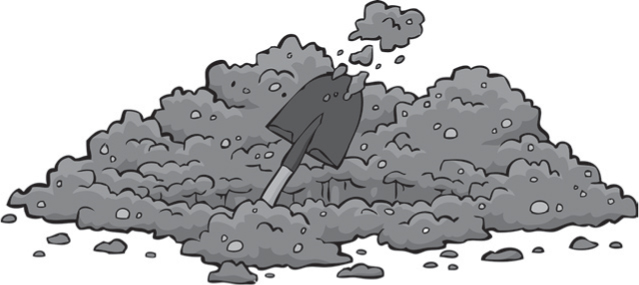
Last-ditch attempt is a military term that dates to the late 17th century. King William III of England is credited with the expression during the Anglo-French War with the Dutch Republic. William was offered to be made Sovereign Prince of Holland if he would capitulate. He refused, and an envoy of the Dutch king threatened that William would witness the end of his state. “There is one way to avoid this,” William replied. “To die defending it in the last ditch.” The phrase was then picked up by the citizens of Westmoreland in the American War of Independence when in 1798 they proclaimed, “In war we know but one additional obligation: to die in the last ditch or uphold our nation.” By the early 1800s the expression was being adopted figuratively.
![]()
MEANING: to wait before beginning something
IN CONTEXT: I was about to drive off but had to hang fire because the back door wasn’t shut properly.
Hang fire originated in the 16th century when muzzle-loaded weaponry was used. When the trigger of a musket is pulled, a small quantity of gunpowder is ignited in an area called the priming pan. The flame from there burns through toward the barrel and sets off the main charge. Possibly because of the poor or inconsistent quality of the gunpowder, there was often a delay between the ignition in the priming pan and the detonation of the main charge that expelled the bullet. This period of delay was called the hang fire.
![]()
MEANING: get off to a quick and successful start; seize an opportunity
IN CONTEXT: The political party members promised to hit the ground running and not waste any time if they were elected.
Many believe that the expression hit the ground running originated from the two World Wars. Soldiers were trained to hit the ground running when leaving a moving boat, tank, or aircraft. This allowed the soldier to land on the ground smoothly, using the momentum of the craft so as to not lose his footing. However, it is more likely that the phrase existed before the 20th century and was used in America by stowaways jumping off a moving freight train before it entered the station, or from the Pony Express mail riders of the 1800s who were avoiding delays when they changed mounts.
![]()
MEANING: to challenge someone
IN CONTEXT: I knew I could beat Matt in a race, so I threw down the gauntlet and he accepted.
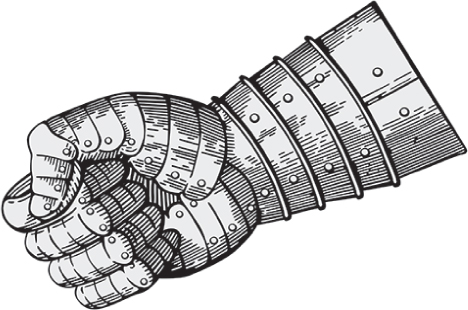
To throw down the gauntlet derives from medieval times. A gauntlet was a glove that formed part of a knight’s suit of armor. It was usually covered with steel plates, which aided in protection. If a dispute arose and a knight wanted to challenge someone to combat, he would throw down his metal gauntlet as a sign that he wanted a duel. If his opponent accepted the challenge, the opponent would pick up the gauntlet and the fight would begin. Taking up the gauntlet has since been used for accepting a challenge.
![]()
MEANING: get out of bed and prepare for the day
IN CONTEXT: We had a long trek the next day so the camp leader told us to rise and shine early and be ready by first light.
Rise and shine is a simple phrase that stems from the military. The “rise” is literal and means to wake up and get out of bed, usually before dawn. The “shine” derives from the shining of boots, buckles, and other equipment that soldiers were expected to do each morning before heading to the parade ground for inspection. It was, and still is, commonly preceded by a cry of “wakey, wakey” in many regiments.
![]()
MEANING: the entire amount; as far or as much as possible
IN CONTEXT: My new TV was high definition and had 3-D technology—the whole nine yards.
The whole nine yards has disputed origins. As it’s similar to dressed to the nines (page 48), some say it relates to the best suits being made from nine yards of fabric. But the more likely origin is military based. During World War II, the American fighter planes used 50-caliber machine guns that were fired from the doors by the gunners. The ammunition used by these guns was linked together on belts that were exactly nine yards long. If a target was shot at with the full belt of ammunition, it was said to have been given the whole nine yards.
![]()
MEANING: to risk something
IN CONTEXT: I’d never invested in stocks before but I decided to chance my arm and have a go at it.
There is some conjecture over the origin of chance your arm. One school of thought is that it began with the military. Badges of rank were worn as stripes on the arm. Officers who took to the battlefield wearing their stripes were taking a risk, as these stripes could be easily noticed. Decisions the officers made could lead to either promotion or demotion—they were chancing their arm. An alternative explanation dates back to 1492 in Ireland. A vicious feud developed between two well-known families, the Ormonds and the Kildares. The Ormonds took refuge in St. Patrick’s Cathedral in Dublin. The Kildares attacked, but then decided to make peace. The Ormonds were suspicious of the peace offering and refused to venture out. In an attempt to prove his good intentions, Gerald Fitzpatrick, the Earl of Kildare, cut a hole in the cathedral door and put his arm through, leaving it at the mercy of the Ormonds. But instead of cutting it off, James Butler, the Earl of Ormond, shook Fitzpatrick’s hand and peace was made.
![]()
MEANING: to withdraw rapidly; to leave quickly
IN CONTEXT: When the police arrived at the scene of the crime, the bandits beat a hasty retreat.
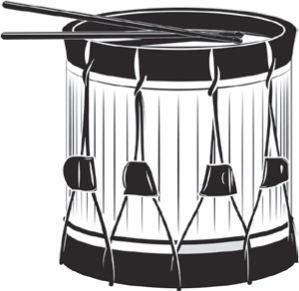
Beat a hasty retreat comes from the battlefields of the 16th century. While war at the time involved brutal hand-to-hand combat, it was generally governed by gentlemanly rules of fair play. A marching army would take its orders from the drummer, who would be stationed next to the commanding officer. There were a series of orders that the troops knew, and the drummer boy would beat them out so they all could hear and act accordingly. One of these drum beats was known as “The Retreat.” At sunset, when the rules of engagement dictated that fighting would cease and the soldiers were to return to camp for the night, the drummer would beat The Retreat and the troops would return. In cases where the battle was not going well, the drummer would beat The Retreat faster to indicate urgency in the withdrawal.
![]()
MEANING: a symbol of honor or achievement; an accomplishment to be proud of
IN CONTEXT: Hal was very excited to be top of his class. It was a real feather in his cap.
Feather in your cap has its origins in the times of early warfare. In medieval England, knights who exhibited battlefield bravery were awarded feathers to be worn on their helmets. These were considered symbols of status, similar to the modern-day medals that soldiers receive. In the first major battle of the Hundred Years War in 1346, Prince Edward, the Prince of Wales, showed bravery. Known as the Black Prince, Edward was only sixteen years old when he was awarded the crest of John of Bohemia, his defeated enemy. The crest consisted of three ostrich feathers, which remains the crest of the Prince of Wales today. Other cultures (most notably many Native American tribes) have independently used the practice of placing a feather in the cap as a symbol of achievement. The phrase was used figuratively by the early 18th century and was popularized in “Yankee Doodle,” the children’s nursery rhyme, in the 1780s.
![]()
MEANING: to settle a conflict and make peace
IN CONTEXT: We’d argued for years, but we decided to put it behind us and bury the hatchet.
Bury the hatchet dates back to the times of the early European settlers in North America. Conflicts were rife as the white people encroached onto the lands of the Native Americans. When a truce was reached and an agreement made to stop the fighting, the Indians would literally bury all their weapons—axes, knives, tomahawks, and hatchets—in the ground so that they were no longer readily accessible. This was usually done by the chiefs of the tribe in a solemn ceremony that marked the end of the hostilities, and which the Native Americans considered binding.
![]()
MEANING: hopeful, but unlikely to succeed
IN CONTEXT: He is driving on a wing and a prayer in that old bomb of a car.
On a wing and a prayer is another expression that stems from World War II. The story goes that an American pilot flew back to base with one wing of his plane badly damaged. The other men at base were amazed that he hadn’t crashed, and he told them he had been praying the whole way in. Another pilot then coined the phrase when he said, “a wing and a prayer brought you back.” The saying got worldwide attention when it was referred to in two Hollywood films, Flying Tigers starring John Wayne in 1942, and Wing and a Prayer in 1944. “Coming in on a Wing and a Prayer” was also a patriotic song released in 1943 that popularized the expression. It described a damaged plane barely able to make it back to base.
![]()
MEANING: to humble someone who is conceited
IN CONTEXT: Don had always been at the top of the class but when the new boy beat him easily in the final exam, it took him down a peg or two.
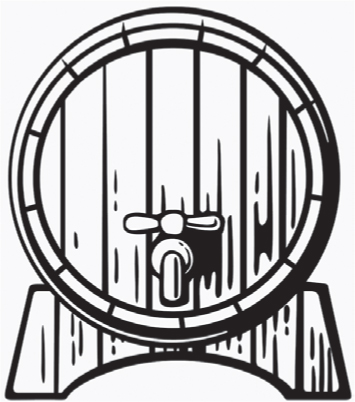
To take someone down a peg or two has disputed origins. Some say it relates to the sea and how a ship’s flag was raised and lowered by pegs—the higher the peg, the greater the honor. A more cogent origin dates back to the 10th century. King Edred of England was in constant battle against the Vikings, but was concerned with the amount of alcohol his army was drinking. As a measure to keep his soldiers sober for battle, Edred directed that pegs be placed in the sides of beer barrels. No soldier was permitted to drink to below the peg in a single session. To get around this rule, soldiers started drinking from other men’s barrels and this would take them down a peg or two.
![]()
MEANING: a person or thing that is in a completely hopeless or useless condition
IN CONTEXT: Within weeks of his divorce, Danny had become a complete basket case.
Basket case began as American military slang from World War I. It referred to soldiers who had lost both arms and legs and had to be carried in a basket. The Surgeon General of the US Army cemented the term when he issued a bulletin in 1919 stating that he “denies that there is any foundation for the stories that have been circulated of the existence of ‘basket cases’ in our hospitals.” The term was later used to refer to people who suffered mental incapacities.
![]()
MEANING: an ultimate disappointment after a promising start
IN CONTEXT: Tom won his first two tennis tournaments, but he turned out to be a flash in the pan as he never got past the first round again.
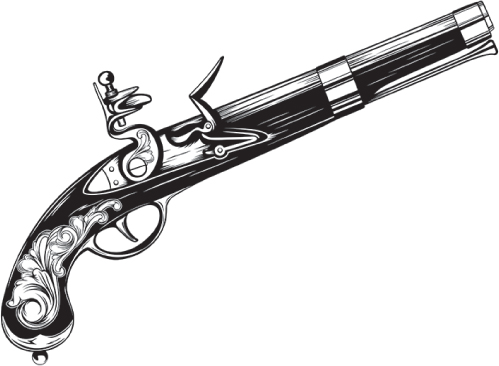
Flash in the pan has military origins from the 18th century. Flintlock muskets contained small priming pans that held charges of gunpowder. When the gun’s trigger was pulled, a spark ignited the priming powder, which usually set off the main powder charge in the musket’s bore and fired the weapon. In some cases, the priming powder failed to light the main charge. The priming powder would flash in the pan but no shot would be discharged, resulting in disappointment after a positive start.
![]()
MEANING: one who stubbornly resists change despite a hopeless cause
IN CONTEXT: The Eagles hadn’t won a game all season and it was raining heavily, but Ian was a diehard supporter so he went to watch regardless.
The phrase diehard supporter has military origins and comes from the Battle of Albuera during the Peninsular War in 1811. During the battle, the commanding officer of the 57th West Middlesex Regiment of Foot, William Inglis, was badly wounded and lay injured on the battlefield. The English were vastly outnumbered by the French and were under attack. Despite this, Inglis refused all attempts to carry him to safety and instead encouraged his men by shouting “Die hard, 57th, die hard.” The English won the battle, and from then on the regiment was known as the “Die Hards.” The phrase “diehard supporter” crossed into politics in the early 1900s to describe anyone who stood staunchly by a cause or colleague.
![]()
MEANING: a victory gained at too great a cost
IN CONTEXT: It was a very divisive campaign and even though they won the election, it turned out to be a Pyrrhic victory.
Pyrrhic victory is a phrase that alludes to the Greek King Pyrrhus of Epirus. His army fought the Romans during the Pyrrhic War for the control of Magna Graecia. In the Battle of Asculum in southern Italy fought in 279 BC, Pyrrhus defeated the Romans but suffered severe losses, including most of his principal commanders. King Pyrrhus was later quoted as saying “Another such victory and we are lost.” The expression was used figuratively from the late 1800s.
![]()
MEANING: to an excessive degree; beyond acceptable limits; outrageous
IN CONTEXT: There was a band and a free bar for 200 people—completely over the top for a 35th birthday party.
Sometimes now shortened to “OTT,” over the top has its origins in trench warfare. In World War I, to go over the top was to charge on foot across open ground from the safety of the trenches. The order given was “over the top, lads, and the best of luck,” but few had much luck as they ran head on into enemy machine gun fire. On the first day of the Battle of the Somme in July 1916, over 58,000 casualties were sustained by the British with this outrageous over the top tactic.
![]()
MEANING: to behave in a self-righteous manner
IN CONTEXT: He was in the wrong, so I told him to get down off his high horse and apologize.
On your high horse began with the army officers of medieval England. To assume a commanding position of supremacy, they would ride on large horses and look down upon those of a lower rank. The higher the officer’s rank, the larger his horse. A large horse was also needed for such high-ranking men, as they generally wore heavy suits of armor and a strong horse was needed to bear the weight. Political leaders then adopted this idea as a symbol of power. They would parade through towns on large horses, which gave them an air of superiority as they looked down upon the common folk. The expression was first recorded by the English theologian John Wycliffe in 1380, and by the 18th century it had changed and was being used metaphorically with mocking connotations.
![]()
MEANING: maintain things in the absence of others
IN CONTEXT: My parents asked me to stay home and hold the fort while they went out to dinner.
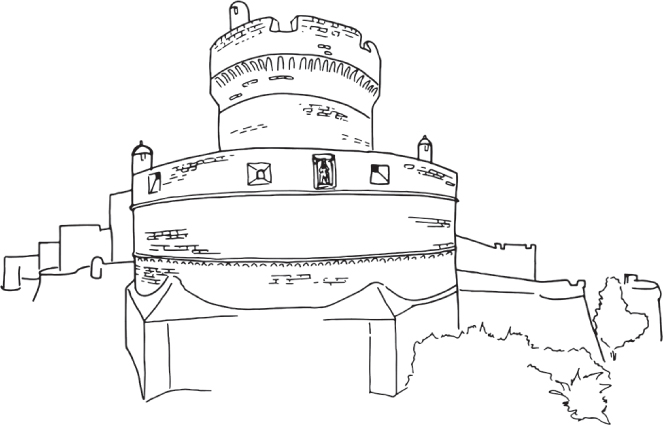
Hold the fort owes its origins to the American Civil War. During the Battle of Allatoona in 1864, General William Sherman was gathering his army atop Mount Kennesaw, near Atlanta, to fight a Confederate troop. He told General Corse that reinforcements were being mounted and to “hold the fort at all costs, for I am coming.” While Sherman immortalized the phrase, it earned widespread acclaim in the late 1800s when the American composer and popular evangelist Philip Bliss wrote the gospel song “Hold the Fort.”
![]()
MEANING: a hostile gesture or remark made while departing, which the recipient has no chance to respond to
IN CONTEXT: She couldn’t resist a parting shot on her last day of work, so she told her boss he was the worst lawyer she’d ever seen.
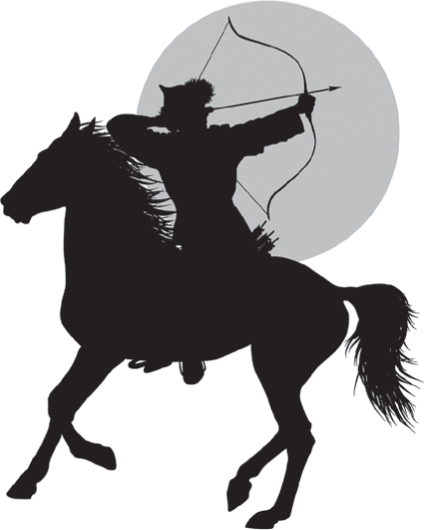
The origins of parting shot date back to a military tactic from the 17th century. The Parthians were an ancient race living in northeast Persia, and their army included mounted archers. The archers would ride away from the enemy at full gallop, giving the impression of a retreat. As the enemy approached, the archers, using superb equestrian skills, would turn and fire arrows backwards with great accuracy. Originally known as a “Parthian shot,” the phrase was corrupted to parting shot by the early 20th century.
![]()
MEANING: to treat harshly or domineeringly
IN CONTEXT: He rode roughshod over his friends to advance his own interests.
To ride roughshod has military beginnings. Horses that are roughshod have nailheads and sometimes metal points protruding from the bottom of their shoes. These are deliberately inserted to provide extra traction in wet or icy conditions. During the 18th century, it became common practice for cavalry soldiers to intentionally roughshod their horses. This turned the horses into brutal weapons, severely damaging the foot soldiers and horses of the enemy when they charged and rode roughshod over them.
![]()
MEANING: bear up in a difficult situation, or carry out an undesirable task and move on
IN CONTEXT: Bruce hated his job so he finally bit the bullet and quit.
Many believe that bite the bullet originated during the American Civil War when soldiers, in the absence of anesthesia during surgery, would bite down on the malleable lead of a bullet to keep themselves from screaming. However, the real origin is thought to be from the Indian Rebellion of 1857. At the time, gun cartridges came in two parts. The projectile was inserted into a base and held in place with grease made from pig fat. To load the bullets, the two parts had to be broken apart and the base then had to be filled with gunpowder. Hindi soldiers were forced to bite the bullet and separate the two parts. They had to do this despite being required to bite into the grease made from pigs, an animal which they considered sacred.
![]()
MEANING: better value for your money
IN CONTEXT: This cheaper car is just as fast as the larger model and gives you more bang for your buck.
More bang for your buck originated with the US national security policy in the 1950s under the administration of President Dwight D. Eisenhower. Known as the “New Look,” the policy increased the military’s stocks of comparatively inexpensive nuclear weapons in order to reduce the number of army personnel and the associated costs. In 1954, US Secretary of Defense Charles Erwin Wilson coined the phrase “more bang for your buck” when he used it to refer to the policy of using nuclear weapons, instead of a large army, to suppress the threat the Soviet Union posed to democracy. It is thought that the expression was an adaptation of Pepsi’s advertising slogan, “more bounce to the ounce,” which was introduced in 1950.
![]()
MEANING: a hand-held fire bomb
IN CONTEXT: The rioters were throwing Molotov cocktails at the advancing police.
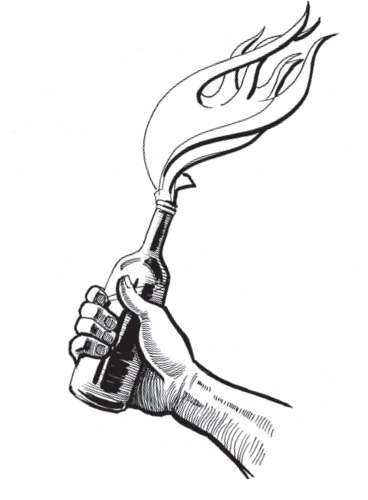
The term Molotov cocktail began during World War II. The phrase was invented by the Finnish, who were referring to the Soviet foreign minister Vyacheslav Molotov. He was responsible for the partitioning of Finland under a pact with Nazi Germany, and many believed he was also responsible for the subsequent invasion of Finland in November 1939. There was much propaganda associated with the invasion, including the ludicrous claim by Molotov that the bombing missions were actually humanitarian food deliveries for the starving Finns. In response to this, the Finns referred to the Soviet cluster bombs as “Molotov bread baskets” and when they developed hand-held petrol bombs to throw at the Soviet tanks, they called them Molotov cocktails as a “drink to go with the food.”